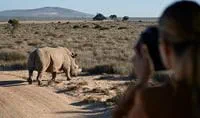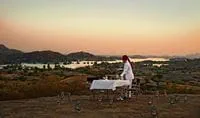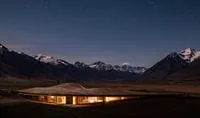Driving in France
Read our guide to diving in France, we've put together a list of the do's and don't to help make your trip as seamless as possible.

If you’re planning to drive to France for your vacation, it’s essential you make sure you have all the correct documentation for your car, as well as a number of compulsory items of equipment stipulated by the French highway authorities. Driving regulations differ between Great Britain and France, and there are severe and strictly enforced penalties for all road traffic infringements. We recommend checking on an official site before you travel, such as www.theaa.com as some rules can change. Much of the equipment can be bought very easily, and is available in car accessory shops and usually on cross channel ferries. However, to be on the safe side, it’s advisable to buy everything in advance. You should also check your motor insurance covers you for driving abroad. It is worth noting that if you are hiring a car when driving abroad that they may not carry all the compulsory equipment, so you should check with the rental company beforehand.
A check list of compulsory equipment
- Original registration documentation
- Motor vehicle insurance (third party compulsory)
- GB sticker (unless your number plate includes the GB euro symbol)
- Warning triangle
- Reflective jacket (the French Government recommend you carry two)
- Headlight adjustments
- Breathalyser
- Snow chains (if driving in winter)
The French driving laws are very strict and the police can impose very heavy on the spot fines as well as confiscate your driving license. Speed limits are fixed according to the type of road and the weather. The standard legal limits which may be varied by signs are 31 mph (50 km/h) for built-up areas, 55 mph (90 km/h) for outside built-up areas, 68 mph (110 km/h) on urban motorways and dual carriageways separated by a central reservation and 80 mph (130 km/h) on motorways.
There are many unsigned fixed speed cameras along the French road network and French law prohibits drivers from carrying any device capable of detecting these or any other. You must disable any camera alert on your satnav or GPS system before you travel.
Should you break down, there are orange SOS free phones every 2km along every auto route. The European emergency number is 112 in case of an accident.
Péages (toll booths)
If you are traveling on the auto route network within France you will encounter toll stations. There is a pay per network toll where you take a ticket on entering a particular network then pay when you leave it, or a pay per section network, where the toll is calculated for each section you drive on and you pay regular amounts along the way. Cards and cash are accepted, and it’s useful to always have small change in your car. You may want to purchase a “Liber-t” tag before you travel, which is a device that attaches to your wind screen in front of the rear view mirror and works very much like an Oyster card. You can drive through the lane marked with the large orange t and the toll is automatically registered to your account. You receive a monthly invoice then the full amount leaves your account via direct debit. In our experience, this system makes driving through France quicker and much easier. For more information or to buy the tag visit the emovis tag website.
Call us on 212 372 7009 to start planning your vacation
Why Scott Dunn?
Unique to You

- We listen to your travel goals and craft unique trips that are personalized to you.
- We’re with you every step of your life’s travel journey, from honeymoons to family trips and beyond.
Seamless Service

- Global offices in the UK, US, and Singapore for 24/7 seamless service.
- We offer flexibility if your plans change so you can book with confidence and peace of mind.
Carefully Curated Collection

- We’ve curated an elevated collection of accommodation, experiences, and guides.
- Committed to fostering close global relationships to continue bringing you unique experiences.
Luxury in Every Sense

- We deliver a sense of luxury that matters most to you.
- Awarded Condé Nast Traveler’s Top Travel Specialists in the World 12 years in a row.
